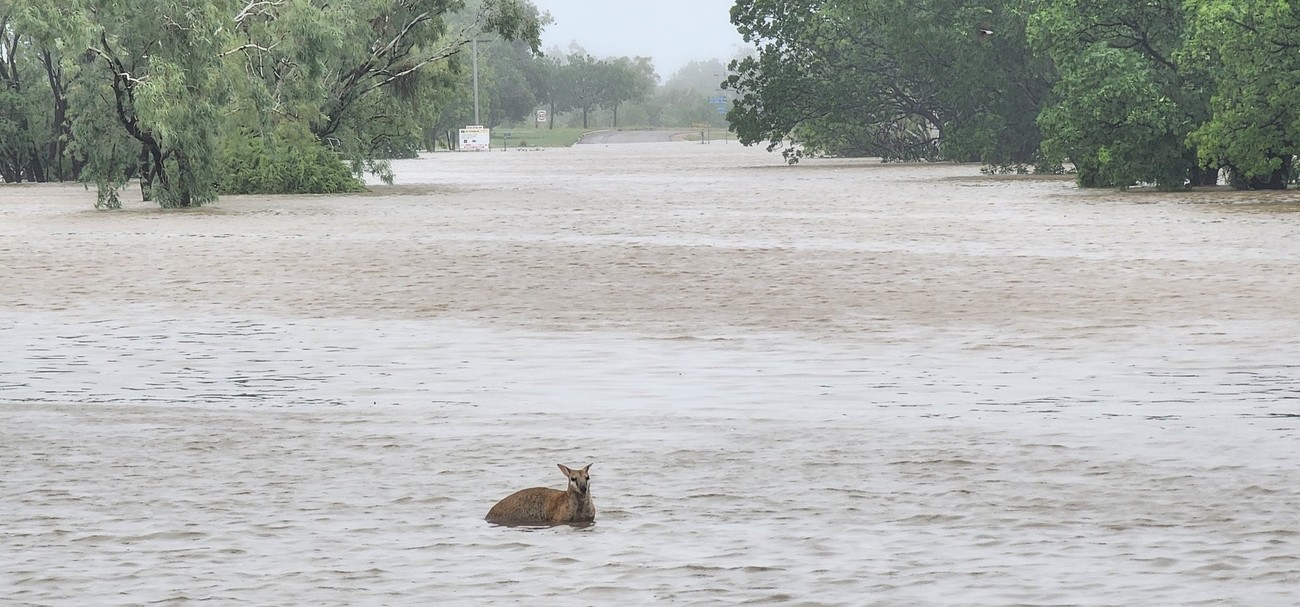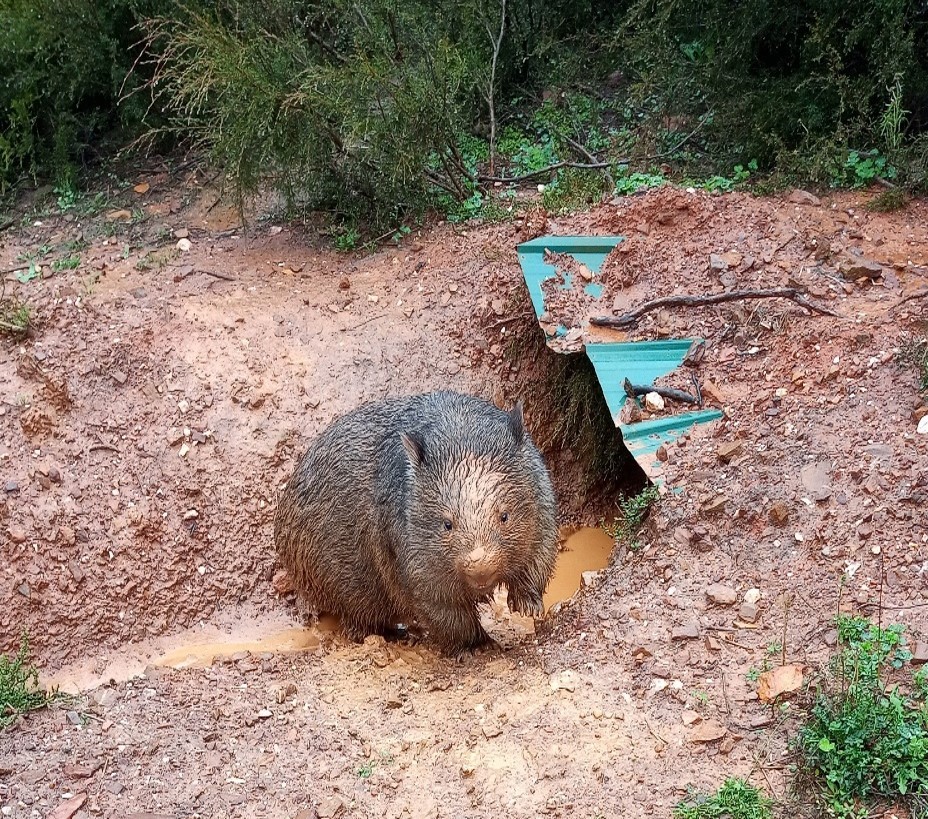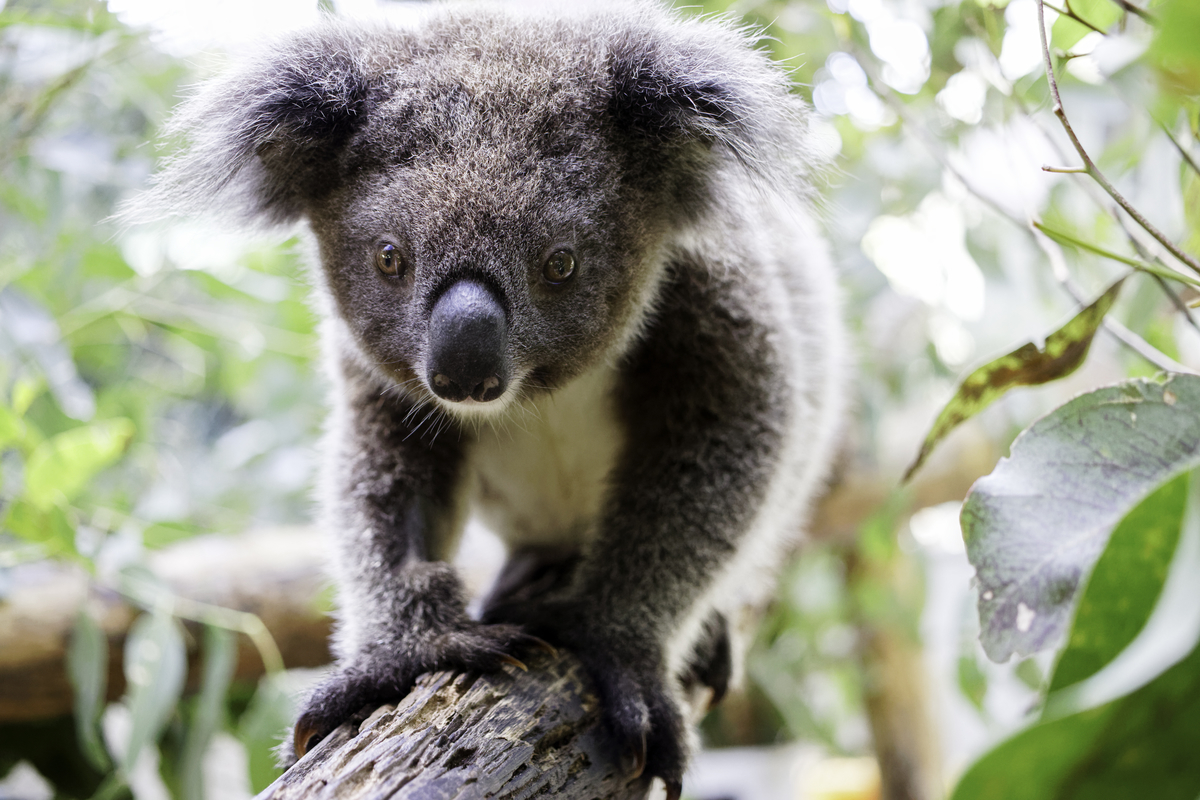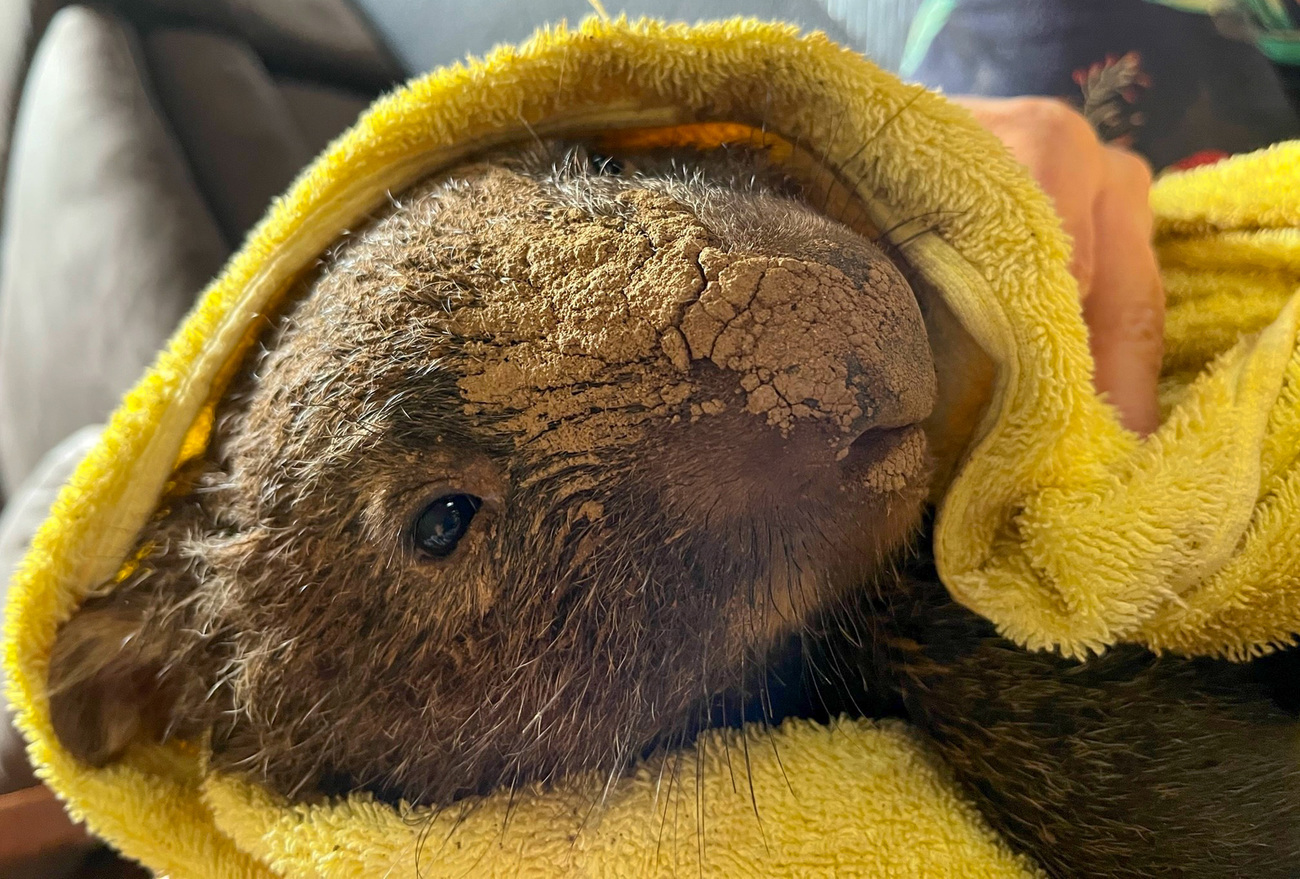Wildlife Rescue - Australia
Australia has one of the highest mammal extinction rates in the worldrescuing animals from devastating flooding in Australia
rescuing animals from devastating flooding in Australia
Worst flooding in Western Australia history. IFAW is rushing aid for animals and wildlife in need
Latest Update - 11 January 2023
Parts of Western Australia are experiencing catastrophic flooding which has completely cut off towns and communities in the Kimberley region. Ex-tropical Cyclone Ellie caused intense rainfall in the region leading to the floods which have been described as the state’s worst on record. The full extent of the impact on our wildlife won’t be known for weeks after the floodwaters subside but wildlife rescuers and groups are expecting to see an influx of displaced, injured, and orphaned wildlife.

Through IFAW’s global animal rescue network – we have thousands of strategically located partners, experts, and authorities across almost every continent allowing us to respond immediately when the call comes in.
Thanks to our longstanding work in Australia, we are able to carry out needs assessments in impacted areas and are in communication with key wildlife groups and response agencies to ensure assistance is provided where needed.
IFAW is providing critical support to local group Derby Native Wildlife to help with their ongoing rescue efforts. This has included providing vital resources for the treatment and care of flood-impacted wildlife. We are on stand-by to bolster our support in the coming days and weeks as we anticipate an influx of animals needing immediate assistance once roads re-open.
Support our animal rescue work across the world so when disasters hit, we are prepared and able to support when needed.
21 March 2022
Our partners at Friends of the Koala are still managing to cope as the team returns back to the centre now the floodwaters have receded and roads are clear for use. Flood survivor, koala joey Gulliver, is also doing very well! Bangalow Koalas and the Great Eastern Ranges, who are working with landowners and regional alliances across New South Wales and Queensland, continue to assess damage to areas of the wildlife corridor plantings and plan recovery efforts.
Current ifaw actions:
- Wildcare Inc SEQ (QLD) - IFAW is granting an Emergency Grant to support carers whose rehabilitation setup and supplies were lost or damaged by the floods water and strong winds.
- The Rescue Collective (QLD): Collaborating with The Rescue Collective to source and distribute food for wildlife in care by carers impacted by the floods in QLD. IFAW responders will be joining The Rescue Collective team next week to assist with the organising, packing and distribution of these supplies.
- Hunter Wildlife (NSW): Provided a generator, water pump, medical supplies and koala supplements.
- Jarake Wildlife (NSW): Provided supplies, fuel and wombat cage
- Australian Seabird and Turtle Rescue, South Coast (NSW): The team has been rescuing an unusually high number of animals, especially turtles. IFAW is providing two seawater tanks.
- Friends of the Koala (NSW): Providing support to purchase a backup generator to assist with this flood and future emergencies. We are also supporting the ongoing wellbeing of staff and volunteers through our Caring for Carers initiative (alongside NSW Gov and WWF).
- Queensland Koala Society Inc (QLD): IFAW is granting an Emergency Grant for supplies and equipment to support koala care and rehab. In collaboration with The Rescue Collective, we will be attending a Working Bee on the property damaged by the floods.
- Wildlife Rescue Sunshine Coast (QLD): Assisting with food, supplements, heat pads, heartbeat stimulators and portable cots for wildlife in care.
- Bangalow Koalas (NSW): IFAW is granting an Emergency Grant to assist with the flood clean-up and recovery efforts alongside landholders, community, tree nursery and plantings. We are looking to join Bangalow Koalas on the ground in the coming weeks to help with these efforts.
- Lockyer Valley Regional Council has sent contact details of local wildlife carers that need support. We are working alongside The Rescue Collective team to meet food needs though the food for wildlife mission supported by IFAW.
- We are also providing support to individual wildlife carers impacted by the floods and helping with recovery efforts and supplies to enable the rescuing and rehabilitating of wildlife.
We will continue to keep this page updated with news.
Through IFAW’s global animal rescue network – we have thousands of strategically located partners, experts, and authorities across almost every continent allowing us to respond immediately when the call comes in.
Thanks to our longstanding work in Australia, we are able to carry out needs assessments in impacted areas and are in communication with key wildlife groups and response agencies to ensure assistance is provided where needed.
IFAW is providing critical support to local group Derby Native Wildlife to help with their ongoing rescue efforts. This has included providing vital resources for the treatment and care of flood-impacted wildlife. We are on stand-by to bolster our support in the coming days and weeks as we anticipate an influx of animals needing immediate assistance once roads re-open.
---

11 March 2022
We are relieved to report that our partners in flood impacted areas, particularly in the Northern Rivers region of NSW are safe, although many of them have suffered personal property loss and heartbreak, including many of the landowners who have been part of wildlife corridor planting efforts. We are very pleased to report the Friends of the Koala hospital and rescue centre was spared the floodwaters and all the animals in care are safe and being cared for by a core team of wonderful volunteers who were able to access the centre even during the height of the floodwaters.
One of the koalas affected by the floods was Gulliver, a koala joey who was found walking on the ground alone amid the torrential downpours, calling for his mum, who sadly couldn’t be found. The Friends of the Koala team rescued him and gave him a thorough health check. He is now safe under the expert care of the IFAW-sponsored vet team and will remain there until he is old enough to be released back to the wild.

9 March 2022
Dangerous storms for southern coastal Queensland and parts of New South Wales are still forecast. Prime Minister Scott Morrison has declared the New South Wales floods a National Emergency, triggering a Federal intervention to deploy money and resources to affected areas faster. The death toll from the floods remains at 21.
New South Wales: Weather pattern is moving away from the NSW north coast and widespread heavy rainfall was observed across eastern NSW, with most of the rainfall around Sydney, the Illawarra and the South Coast and predicted to continue in the coming days. Sydney and surrounding areas impacted as dam walls spill and residents evacuated.
Northern New South Wales: Flood waters are receding but there are high chances of thunderstorms, damaging winds, large hail and heavy rain which may lead to flash flooding later in today. Our partners at Friends of the Koala are coping and, luckily, the hospital and centre escaped the flood waters. A core group of volunteers have been working around the clock to ensure the 14 koalas in care are kept safe and dry and two flood survivor joeys have been rescued. We are in touch with our partners at Bangalow Koalas and the Great Eastern Ranges who are working with landowners and regional alliances (across NSW and QLD) to assess damage to property and areas of the wildlife corridor plantings, and plan cleanup and future recovery efforts.
Queensland: Showers and thunderstorms are predicted with a risk of severe thunderstorms and heavy rainfall that may lead to more flash flooding, large hail and damaging wind gusts.
We remain in constant contact with our partners, wildlife groups and carers to provide support and assistance as the severe weather continues across NSW and QLD. Whilst it is likely to be several days or weeks before the full extent of the devastation will become clear, we are starting to receive more requests for help.
---
8 March 2022
We remain in constant contact with our partners, wildlife groups and carers to provide support and assistance as the severe weather and flooding continues across New South Wales and Queensland. Whilst it is likely to be several days or weeks before the full extent of the devastation will become clear, we are starting to receive more requests for help.
So far, we have provided the following:
- A generator, water pump, medical supplies and koala supplements to Hunter Wildlife, in the NSW Hunter region
- A wombat cage, fuel and support to Jarake Wildlife in NSW
- A seawater tank to Australian Seabird and Turtle Rescue, South Coast
- Assistance with repairs and replacement of supplies, enclosures and equipment lost during the floods to Wildcare Inc in south-east Queensland
- An emergency back-up generator for Friends of the Koala near Lismore in NSW
- Future support for enclosures repairs and supplements/food for koala joeys to Queensland Wildlife Society
- Future support of funding and boots on ground (fencing, cleaning out houses, sheds, repairs) for Bangalow Koalas and impacted landholders in the NSW Northern Rivers region
As more requests come in, we will keep this page updated with news.

3 March 2022
Devastating and unprecedented rains are causing flooding in New South Wales and Queensland, Australia. The record-breaking and relentless deluge has lasted days and flooded towns and cities along Queensland’s south-east before spreading to New South Wales.
The death toll and number of missing people in both states continues to rise as thousands of homes are evacuated. Devastatingly, many of the impacted areas were also impacted by the catastrophic Black Summer bushfires two years ago.
Some of our key partners are located in this area and have been impacted.
Our partners Bangalow Koalas and many of the local landholders they work with have been impacted, including some IFAW supported planting sites. We sadly won’t know the true extent of the floods on these projects until floodwaters subside but we’re regularly in touch to see how we can help.
Our partner Great Eastern Ranges and their regional group Healthy Land & Water, which we are working with in the Lockyer Valley, anticipate landholders will need critical assistance when the floodwaters subside. This area was also devastatingly impacted by the 2019-20 bushfires.
We’re also in touch with Land for Wildlife South East Queensland landholders who we’ve worked with on tree plantings and habitat restoration projects and have now sadly been impacted by the floods.
Thankfully, the floods haven’t reached our partners at Friends of the Koala, but access to the centre, which is still operating, has been impacted. Some members of the team are still able to access the facility and are rescuing and caring for affected koalas. IFAW has previously worked with the team to develop an emergency evacuation plan as part of our Disaster Preparedness work.
The full extent of the impact on our wildlife won’t be known for weeks after the floodwaters subside but we’re expecting to see an influx of displaced, injured, and orphaned wildlife. Burrowing animals such as wombats and echidnas are expected to be the most heavily impacted as their homes are filled with floodwaters and mud.
We’re on standby to help however is needed.
ifaw action
We have been actively reaching out to all our partners, contacts, wildlife carers and government departments to provide any assistance that is needed and have been acting as part of the emergency animal response as part of the Wildlife Emergency Response Taskforce in NSW set up under National Parks and Wildlife Service.
We have received several requests for support and are responding to these with urgency. Whether it be providing critical supplies such as food supplements, enclosures, generators or when it’s safe to do so, on the ground assistance, we will be there to help communities recover.
We will continue to update you with information on what actions are being taken and what further support is required.
Related content
Every problem has a solution, every solution needs support.
The problems we face are urgent, complicated and resistant to change. Real solutions demand creativity, hard work and involvement from people like you.